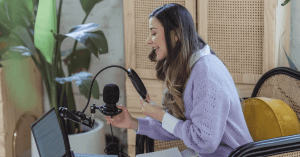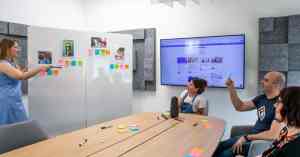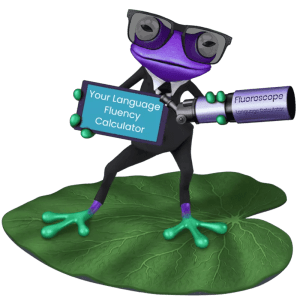How To Improve Your Learning Skills
Overcoming roadblocks and optimizing your potential.

In a regular classroom environment, the student rarely has autonomy over their learning skills or process. The teacher comes prepared with all the equipment and information you need. But when we take our learning home with us, it can feel like we are driving a car without a steering wheel.
On many occasions, we will walk away from the task and leave it for our future selves to deal with. Does this sound familiar? You’re not alone. In one study, a whopping 88% of students admitted to procrastinating for at least 1 hour a day.
In 2020, millions of students were forced to stay home and grapple with a new concept called remote education. Apart from the occasional class or workshops held over video calls, the student had no teacher there to hold them accountable for their time. This resulted in many students significantly falling behind in their learning skills.
Students need more than material and assignments to learn something new. They need to know how to learn with real learning techniques. Without the how, students will find it hard to stay on track and absorb new study material.
In this blog, with reference to the course “Learning How to Learn” by Barbara Oakley, we will provide a comprehensive guide. Here, you will be taught how to overcome procrastination, how to optimize your learning sessions, and what changes you can make to your daily lifestyle. Keep reading for tips on becoming a better learner at home.
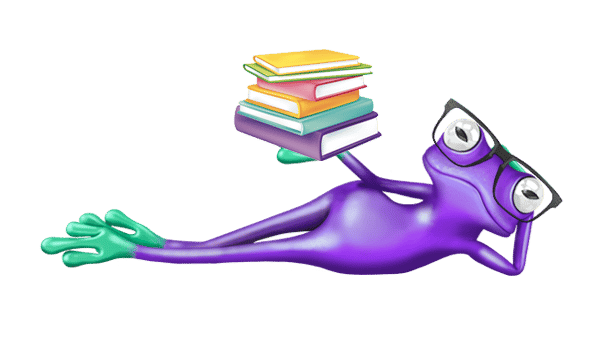
Conquering Procrastination
The first hurdle you will need to overcome is the very act of starting. For some people, this may be easy because they have their motivation clearly defined. But for many of us, finding that purpose can be a challenge. Barbara Oakley outlines a very effective step-by-step system for the hesitant learner:
- Keep a planner/ journal and take notes along the way. This way you can see what doesn’t work for you later on. You can also reference things that you missed or forgot about.
- Make a routine around the task you want to begin. This might include preliminary tasks to get you into the mindset, like making a cup of coffee, leaving your phone in the kitchen, and then sitting at your desk. This will make it easier to fit daily practice into your everyday life.
- Plan your days the night before so you have the tasks solidified in your mind. This will help to ensure your commitment to the task.
- Small challenges only! Don’t tell yourself “I have to write an entire paper today”. Instead, split the day up into smaller tasks, like “Research for 2 hours, write the first paragraph, organize the body into topics, etc”.
- Reward yourself. For example, if you work from 9 am-11 am, you could reward yourself with a second cup of tea and have a few minutes of free time before picking up again. You can continue this throughout the day with different activities to keep things interesting. Go for a walk at lunchtime, run a quick errand, or read a chapter of a book you’re enjoying. The key is to give your brain time to rest to avoid burnout.
- Celebrate your victories. If you finish an important task, don’t just move on to the next one. Pat yourself on the back! Tell a friend what you accomplished that day, or put a brightly coloured checkmark next to it on your to-do list.
- Delay rewards until you’ve finished tasks. This could be as simple as putting a jellybean at the end of each page you read until the book is finished. This is extremely important because procrastination is born out of premature rewards. Many people would rather watch a TV show than finish that essay. The dopamine kick our brain gets from ill-timed rewards is one of the main reasons why people procrastinate in the first place.
- Understand what your cues are. If your office is filled with photos of your friends – which makes you want to message them and catch up, try putting the photos in a different room.
- Remove the cues! If your procrastination cues are inescapable for you, (ie. pets, children, noisy environment) try to remove yourself from the area and go to a quieter place. This could be a local library, a friend’s house, a rented office space, anywhere!
- Treat this as a system. You need to know when to rest and when to work. If you don’t trust this system, you could find yourself working all hours with no “on” or “off” switch.
- Be ready to fail. If you find yourself still procrastinating, make sure you have a backup plan. Some great examples could be an app that tracks progress or an app that will block websites from you. These might sound extreme, but sometimes desperate times call for desperate measures.
- Do the task you want to do the least – first! This way you will have a powerful sense of accomplishment that will carry you through the other tasks in your learning process with ease.
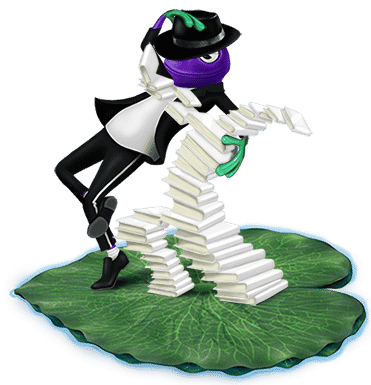
Exercising Your Memory
Aside from simply starting, the single most effective tool for your learning skills is harnessing memory. It holds our ability to encode, store, and retrieve information on everything we encounter.
Your memory and your brain have a symbiotic relationship that improves with constant use. There are many ways you can do this, but some methods may have better learning outcomes for you than others.
- Chunking: Chunks are ideas that are grouped in your mind by their use and their meaning. They can become more complex over time the more you do a task. They are easily accessed from your long-term memory and pulled into your working memory. For example ”chores” started as their own chunk, but slowly over time it went from “cleaning the house” to “cleaning the kitchen”, “cleaning the bathroom”. The chunks you make will evolve and become more specific to an activity as you gain learning skills.
- Recalling: This is the brain activity we use when we are remembering something without a reference. By forcing ourselves to recall while studying for an exam, we can paraphrase ideas and solidify the information.
- Transferring: This is where our mind looks for commonalities between the things we are trying to remember. This is especially useful if you have mastered one thing and are trying to learn about something else on the same topic.
- Interleaving: Instead of learning about one thing per session. Students will often use interleaving as a way of improving their recall. This is because your brain will chunk this information together and search for patterns to draw off of. This method is important for your flexibility in a learning environment.
- Deliberate Practice: While much of the information we learn the first time can be recalled. The chances of this happening with the majority of information relies on practice. You need to dedicate a specific time of day to actively learning the material instead of passive learning.
- Repetition: The most simple, and the most effective. This is the best way to keep new information in your long-term memory. This technique is especially useful if it’s spread out over several days.
- Metaphors and Analogies: Get creative with your learning! Try creating a mental image for the most complex of ideas you’re trying to remember.
- Index Cards: The combination of writing and speaking is an effective way of remembering information. Index cards allow a visual chunk to occur with your material and keep everything neat and tidy.
Getting Personal
Now we have the basics covered, it’s time to ask yourself how you can change things about your personal life to impact your learning efficiency. Below are some of the most important personal hurdles you must overcome before you undertake learning as a lifestyle, as well as a few useful changes to consider.
- Fitting learning skills into your life: This will require a decent amount of list-making and critical thinking skills. At the start of each week, make a list of key tasks for productive time. This can then be specified into days and hours as the week progresses. You could also optionally broaden this to months, years, and decades if you want a clearer idea of where you will involve your new learning skills.
- Believing in yourself: Everyone who ever achieved something was -at first – a beginner. It’s okay to not know everything and go at a slower pace than others. If you truly want to become a good learner, you need to believe you are the same as the master’s. Everyone is equal in the world of learning. You are capable of doing this too!
- Teamwork: One of the best ways to measure your progress is by teaming up with someone else and working together. This will help you find your blind spots, while also giving you a sounding board. The more you talk about your ideas with others, the better they will become ingrained in your mind.
- Sleep: One of the most essential study habits. While we sleep, our brain removes toxins and does some house cleaning! Long-term memories are siphoned off for later use, while insignificant information is archived (potentially forever). Without sleep, our mind becomes a clouded and cluttered place incapable of learning.
- Physical exercise: Have you ever felt the mental clarity that comes after a workout? This is because exercise helps preserve and grow new neurons. Making time every day to move and do something active is an excellent way to keep your brain in top condition for learning.

Frequently Asked Questions

What are the most effective learning strategies?
There is no one-size-fits-all answer to the question of what the most effective learning strategies are. However, there are a few general principles that can help guide students in finding the methods that work best for them. First, it is important to have a clear understanding of what is being learned. What are the goals of the learning process? What knowledge and skills need to be acquired? Once these questions have been answered, it becomes easier to choose the right strategies.
One of the best ways to learn quickly is to find a method that works for you. Some people learn best by listening to audio recordings, others by reading texts, and others through interactive activities. Find the method of learning that works better for you and stick to it.
First and foremost, it is important to provide extra support and assistance. This may involve breaking down instructions into smaller steps, providing hands-on learning opportunities, or offering more one-on-one time with a teacher or tutor. Additionally, it can be helpful to use alternative methods of assessment, such as oral exams or portfolios, which can better showcase a student’s understanding of the material.
One is to set realistic goals and then break those goals down into small, achievable steps. For example, rather than setting a goal of getting an ‘A’ in a course, a student might break that goal down into smaller goals such as reading one chapter of the textbook per day or spending 30 minutes on homework each night.
Learning effectively is a skill that takes practice to develop. However, there are several strategies that can help make learning easier and more efficient for students of all ages. Some of these include breaking down information into manageable chunks, focusing and paying attention, setting achievable goals, taking practice quizzes, and seeking help from a tutor or teacher.
First, it is important to create a dedicated study space. This can be anywhere in the home or even at the library. The key is to find a place where you can focus and concentrate without distractions. Once you have found a good study spot, you need to establish a routine. Decide on specific days and times that you will dedicate to studying. Then stick to that schedule as much as possible. It is also crucial to create a study plan for each session. Start by identifying the goals for the session and then break those goals down into smaller tasks.
There are a number of ways to improve your ability to acquire and apply knowledge and skills. One way is to make sure that you are always learning new things. When you learn new information, make sure to practice using it right away. This will help embed the new information in your memory so you can recall it more easily later on.
There are many ways to improve your English, both in speaking and writing. One of the best ways is to practice regularly. This could involve taking an online course, signing up for a language exchange program, or simply having conversations with native English speakers.
Another helpful tip is to read extensively in English, whether it’s novels, newspapers, or magazines. Not only will this help to improve your vocabulary and grammar, but it will also give you a better understanding of how the language works. Additionally, watch English-language films and TV shows, and listen to podcasts and radio programs to get used to the sound of the language.
Enjoy Your New Learning Skills!
Now you have all the tools to take with you to build stronger learning skills. This is where online tools like our app LillyPad truly shines!
For those who enjoy online classes, this app has an archive of exciting stories, blogs, articles, and more. Designed to help people learn languages, Lilly is an interactive tool capable of reading and learning alongside you. With features designed with the student in mind, LillyPad is an excellent resource for you as you embark on improving your learning skills. Simply upload your favourite stories or take your pick from our wide selection of genres.
The Learning Pads:
LillyPad incorporates four powerful Learning Pads which are all guided by Lilly. All problematic words or what we like to refer to as “opportunity words” which are experienced during a member’s reading session are collected, tracked, and delivered for practice across the Learning Pads via our spaced repetition algorithm. The unique ability to collect, track, and deliver each member’s personal “opportunity words” significantly enhances the individual’s opportunity to progress. The Learning Pads include Lilly’s Gold, Spelling, Pronunciation, and Vocabulary.
Do you want to improve your English? Visit www.lillypad.ai.
Follow us on Facebook or Instagram!
Note: iOS is currently unavailable.

Bethany MacDonald
Bethany MacDonald has contributed articles LillyPad.ai since 2020. As their Blog Lead, she specialises in informative pieces on culture, education, and language learning


